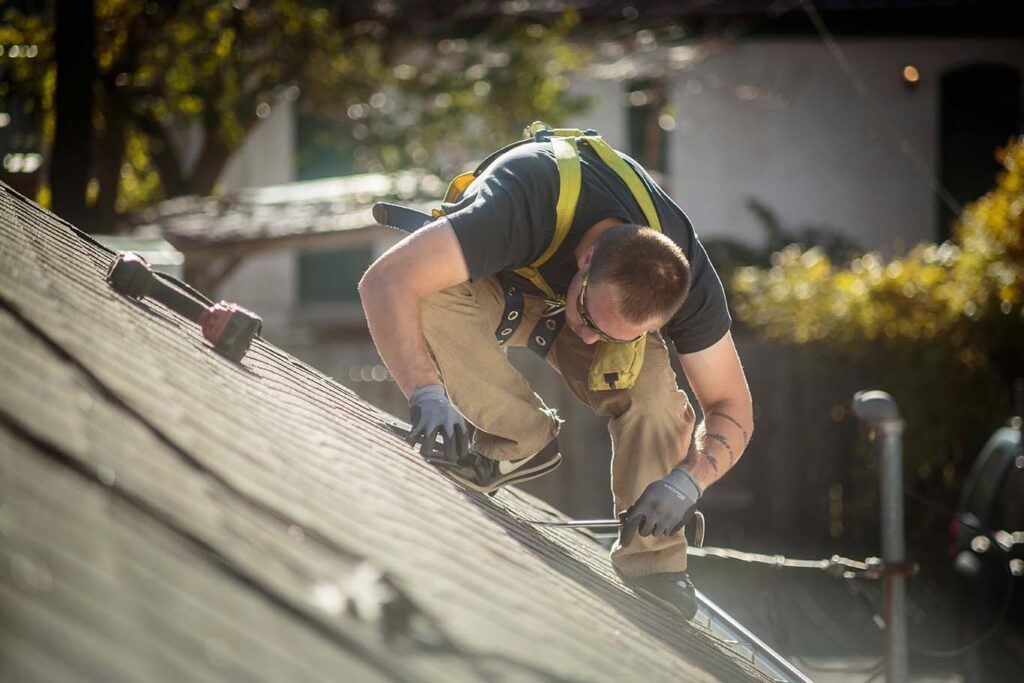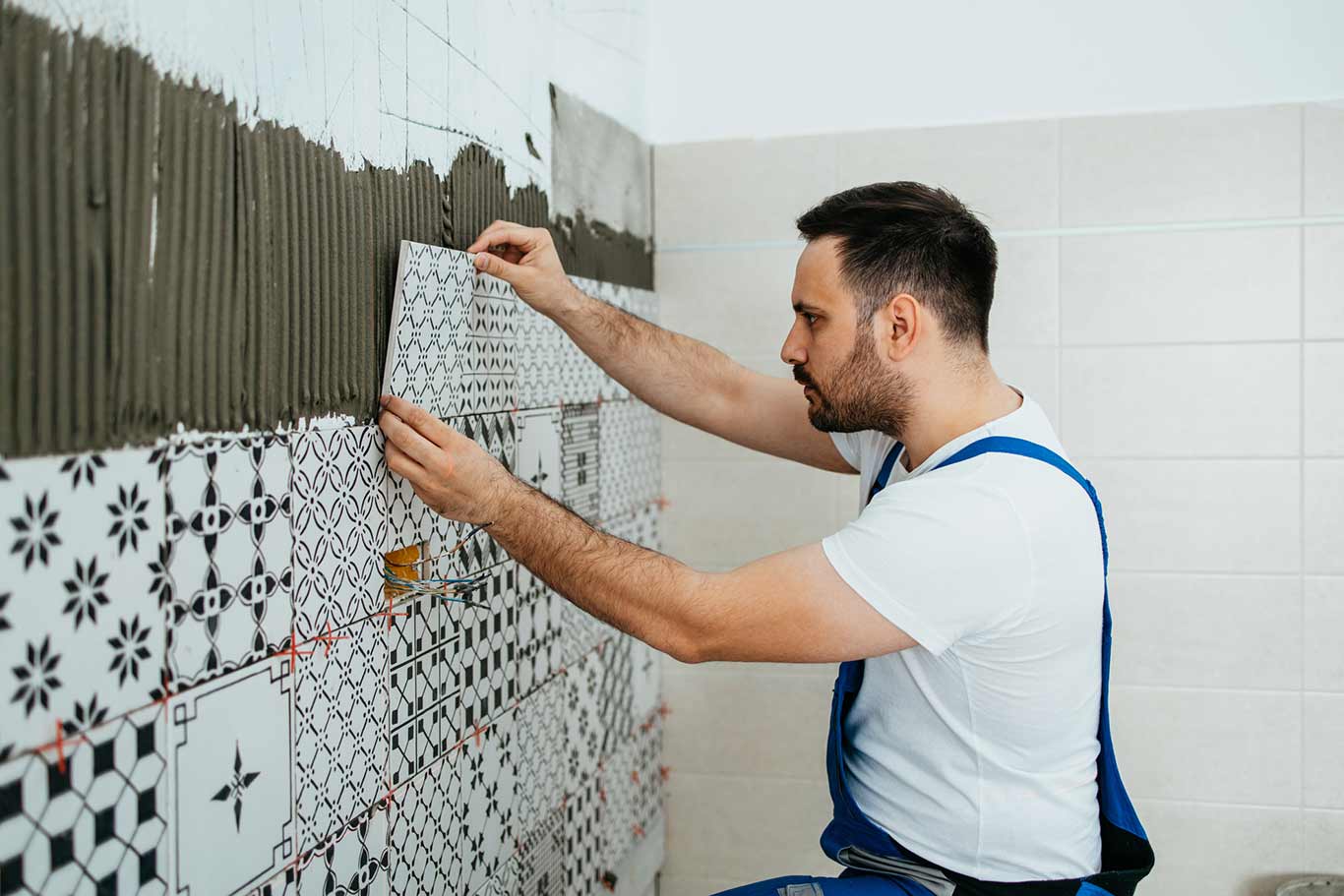If you’re working in the construction industry, whether as a labourer, scaffolder, or another site-based trade, you might be thinking about how to move up or specialise. Roofing is one route that many in the building trade consider, and one of the biggest questions is: does it pay well?
Roofing offers a solid path to increase your earnings, especially compared to general labouring or support roles. Many roofers start out as mates or improvers, learning on the job, and progress to skilled roles with significantly higher day rates. Others come from related trades like joinery, bricklaying, or cladding – bringing over skills like measuring, cutting, or working at height and find that roofing can offer more consistent work and better pay.
According to the UK Roofing Industry Report (Spring 2025), 36% of firms reported an increase in enquiries and workload, while concerns about skills shortages continue to grow. This steady demand, combined with a lack of qualified roofers, means that skilled workers can command strong rates, particularly in specialist areas like leadwork, flat roofing, or metal systems.
This guide takes a closer look at what roofers really earn across different roles, how to get started in the trade, and what kinds of jobs are out there. If you’re looking to boost your income and learn a respected, hands-on skill, roofing could be a practical next step.
Demand for roofers in the UK

Roofing continues to be a solid and in-demand trade across the UK. According to a Roofing Industry Report, 36% of firms reported an increase in roofing enquiries during Spring 2025, and 36% also saw a rise in workload over the same period.
Several factors contributed to this surge. Many properties suffered damage during the winter months, leading to a higher number of repair and emergency call-outs as the weather improved. The arrival of spring also brought better, more stable weather conditions, which are ideal for scheduling larger roofing projects like full replacements or new installations. Additionally, government-backed incentives promoting better-insulated, energy-efficient roofing have encouraged more homeowners and developers to invest in upgrades. These combined drivers have led to a noticeable increase in demand for roofing services.
Every building needs a roof, and many require regular maintenance, upgrades or full replacements. These ongoing needs, combined with seasonal factors and policy changes, mean there is strong and growing demand for skilled roofers.
Looking for Builders' Insurance?

What do roofers earn?
Roofers tend to earn more than general labourers and can match or even exceed the earnings of other skilled trades such as plasterers, painters, or bricklayers, particularly when self-employed or working in high-demand specialisms.
Average Roofer Salary (Indeed, June 2025):
- Per day: £162
- Per hour: £15.70
- Per year: £29,512
This sits just below the UK average salary, but many roofers (especially those self-employed or running teams) earn well above this.
Day rate
Starting out, a labourer working with a roofing team might earn around £90-£110 a day. Once you’ve got the skills and can work independently, day rates can rise to £180-£250 or more. If you run your own jobs or have a strong local reputation, your earnings can climb even higher.
Hourly rates for employed roofers
- Apprentice: £7.55/hour (minimum wage, 2025)
- Newly qualified (over 21): £12.21/hour (minimum wage, 2025)
- Average employed roofer: £15.70/hour (Indeed, June 2025)
Hourly rates for Self-Employed roofers
- Sole trader: £37/hour
- Ltd company owner: £44.50/hour
(Checkatrade, May 2024)
Self-employed roofers typically earn more per hour, but they also cover their own insurance, tools, transport, and sometimes materials.
What’s the highest paid roofer?
According to Indeed the cities with the highest average salary for roofers:
Manchester – £36,000
Bristol – £35,300
Liverpool – £33,000
However, the top earners in roofing tend to be specialists. Leadworkers, for example, who shape and install lead flashing on heritage buildings, can command high rates due to the skill involved. Metal roofers working with zinc or copper can also earn a premium, especially on architectural or commercial projects.
Then there’s the eco-side of things: green roofing and solar panel installation are growing fields with good earning potential. You can get a better idea of how different specialisms and earning potential fit in below.
Different roofing specialisms and earning potential

Industry reports show that slaters and tilers are among the hardest trades to recruit, followed by felt roofers and general labourers. Here’s a breakdown of key roofing specialisms and what you can expect to earn:
Slating & Tiling – £25,000–£40,000 per year
The backbone of domestic roofing, especially in older properties. Not always the highest paid, but steady work and highly respected. Good entry point for new roofers and often more available in rural or conservation areas.
Flat Roofing – £30,000–£45,000 per year
Includes felt, GRP (fibreglass), and rubber systems like EPDM. Popular in urban areas and extensions. Pays slightly better than slating due to the technical nature of some systems and higher demand for repairs.
Leadwork – £40,000–£60,000+ per year
Specialist trade with high earning potential due to the craftsmanship involved and the shrinking number of qualified workers. Commonly used on heritage buildings, chimneys, and flashings, and often charged at premium rates.
Metal Roofing – £45,000–£65,000+ per year
Zinc, copper and aluminium work, often on high-end or architect-designed buildings. Requires training and experience, but top tier pay reflects its niche status and precision requirements.
Commercial Roofing – £35,000–£50,000 per year
Large-scale sheeting and cladding, usually on warehouses, schools or factories. Fast-paced and good for teams. Day rates can be strong, especially for experienced crews working on tight deadlines.
Green & Solar Roofs – £30,000–£50,000+ per year
In demand as buildings go more eco-friendly. Still a niche area but growing rapidly. Often combined with electrical work or landscaping knowledge. Potential to earn more as demand continues to rise.
*Data based on a range of job ads for the UK 2025
Typical jobs and what roofers charge
Roofing work is incredibly varied and can range from small domestic repairs to major commercial installations. The kind of jobs you’ll take on often depends on where you’re based, your level of experience, and whether you’re working for a company or subcontracting.
Domestic jobs tend to be more common in residential areas, think roof repairs, re-tiling, and upgrades to things like guttering. In urban centres or for larger firms, you might find yourself working on commercial buildings, schools, or new housing developments. Then there are seasonal and reactive jobs, like emergency repairs after storms or routine maintenance to prevent leaks and damp.
Some roofing work is one-off and high-value (like full re-roofs) while other jobs might be shorter callouts that you complete in a day. The ability to price and manage both types effectively is part of what makes roofing a skilled trade with strong earning potential.
Common tasks include:
- Full roof replacements (strip and re-tile)
- Roof repairs after storms or wear and tear
- Flat roof installations and repairs
- Installing roof windows like Velux
- Chimney repairs and flashing
- Loft conversions involving structural roof changes
- Fascia, soffit and guttering work
- Large-scale commercial roof sheeting and cladding
- Green roof systems or solar panel installs
Typical Charges
- Replace standard tiles: £350–£500
- New tiled roof (average 3-bedroom house): £14,000
- New flat roof (standard garage): £1,000
Which? May 2024
Other trades you’ll work closely with
Roofers often team up with:
- Carpenters: For trusses, rafters and roof framing
- Scaffolders: Essential for safe access to most roofing jobs
- Bricklayers: Especially when working around chimneys or parapet walls
- Electricians: On solar installs or for cables running through the roof
- Plumbers: For vent stacks or flues that penetrate the roof
- General Labourers: To assist with materials and site tidiness
Being able to work well with these trades helps the job run smoother and builds your reputation as a team player.
How much does a tiler make?

How to become a roofer

There’s no single route, but here’s a typical path:
- Start as a labourer or roofer’s mate
- Learn on the job – ask questions, watch closely, practise under supervision
- Work towards an NVQ Level 2 in Roofing Occupations
- Get a CSCS card to access most building sites
- Build up your own set of tools and PPE
- Over time, progress to improver > roofer > team leader or subcontractor
You can also go through an apprenticeship scheme if you prefer structured learning.
How long does it take to train as a roofer?
You can pick up the basics in a few months if you’re hands-on and work full time. Most people feel confident doing full roofing jobs after 1–2 years, depending on how much variety they get exposed to. Apprenticeships usually last 18–24 months. But you’ll keep learning throughout your career, especially if you move into specialist work.
What building skills transfer well to roofing?
If you’re already working in construction, you’ve likely got a head start. Useful transferable skills include:
- Confidence on ladders or scaffolding
- Good balance and fitness
- Accurate measuring and cutting
- Hand tool experience
- Understanding of basic construction principles
- Site awareness and health & safety
Carpenters, scaffolders, general builders and even decorators often transition well into roofing.
Tips for tradespeople to pivot into roofing
- Offer yourself as a reliable roofer’s mate – show up on time, work hard, listen
- Get your CSCS card and basic PPE sorted
- Buy entry-level tools gradually (hammer, Stanley knife, tape, nail pouch)
- Use YouTube and trade forums to learn terminology and watch installs
- Follow good roofers on Instagram or TikTok – loads of useful content out there
- Don’t rush – mastering roofing takes time, especially details like valleys and flashing
Is roofing the next step for you?
Roofing is tough, but the rewards are real. Once you’re trained and confident, it can offer solid day rates, independence, and steady work. If you enjoy working outdoors, don’t mind heights, and want to move up from general labouring or another trade, roofing could be a great next step. Try getting a week’s experience on a roof – it might be just what you’ve been looking for.
Secure your trade & tools insurance
As with any building work there are a range of risks involved with your work. That’s why having a suitable builders’ insurance policy is a necessity when you’re starting out.
At Protectivity, we offer affordable tradesman insurance designed to cover the specific risks faced in your industry. Our policies include public liability coverage of up to £5 million as standard, with optional add-ons such as Contractor Works cover, Plant and Tools cover, financial loss protection, and employee tools cover (available when selecting other benefits). This ensures you’re prepared for unexpected costs when unforeseen events occur. Plus, you can now insure your tools from just £8.98 a month with our tools insurance.
For roofers select one of our builders’ activities, when you get a quote and secure the protection you need.
Builders' Insurance from Protectivity
*Disclaimer – This blog has been created as general information and should not be taken as advice. Make sure you have the correct level of insurance for your requirements and always review policy documentation. Information is factually accurate at the time of publishing but may have become out of date.
Last updated by

















